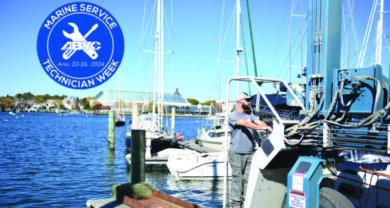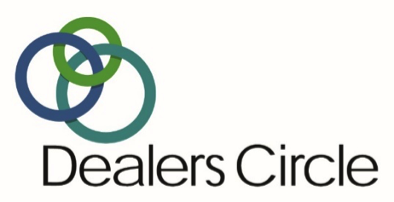The Price is – just about – right
Establishing the value of a boat, new or pre-owned, so that it may be fairly sold, adequately financed or correctly insured is more art than science. The boat valuation guides in print and on the Web do a good job of approximating pricing, while boat shopping Web sites can be used to see what owners are asking for pre-owned boats. But, that doesn’t necessarily make it a realistic or legitimate price.
It is a significant topic of discussion in the selling process, because no one wants to pay more – or receive less – for a boat that they want, have loved, or seek to unload. When dealers sell pre-owned boats, they also need to recognize a fair profit margin, so customers walking in with pricing they have found in price guides or on the Internet may need to be delivered a reality check about the true underlying value (wholesale value) of their trade.
In a non-scientific search of price providers on a 2006 28-foot cuddy cruiser with single 300 hp sterndrive engine, here are the values that come up:
Not surprising are the higher expectations of consumer sellers on the Web-based boat listing sites. Tom Fournier, product manager for ABOS Marine Blue Books, notes, “In my experience, the listing prices are 10 to 15 percent higher than actual sold price. Some are fishing for prices much higher but you can spot those pretty easy if there are a number of the same year/make/models being offered.”
Applying Fournier’s rule of thumb suggests this boat more likely sold for a low of about $60,000 to a high of $81,000, more closely in line with the pricing guide ranges.
All values noted represent boats in vastly different conditions, locations, hours of usage and outfitting. Statisticians typically throw out high and low “outliers” in computing averages, and doing so with these numbers results in an average retail of about $71,000 – roughly the mid-point of the price guide values.
The best source of value would be a database of boats’ actual selling prices. YachtWorld.com has a “Sold Boats” database of 277,000+ records on the trade side of its Web site. The price found here for that same ‘06 28-foot cuddy ranges from $72,000 to $75,000.
Debra Keene Bergeron, General Manager for YachtWorld.com and boats.com says, “For popular, higher production models, that data is pretty accurate. Custom or ‘one-off’ boat data is also available, but a little harder to quantify, since some brokers prefer to keep that information private.”
She notes that Sold Boats data is currently available only to yacht brokers and association member surveyors who subscribe, but that banks, insurance companies and others serving the marine industry have expressed strong interest in gaining fee-based access to the data in the future.
Perhaps another tactic to unearth fair or reasonable selling prices might be lenders requiring a previous sales contract when collecting the paperwork during loan underwriting. It seems logical a seller would be happy to provide it since it would likely show a favorable discount from the new (or previous used) price paid, motivate the buyer and comfort the lender.
In real estate, actual selling prices are said to be provided on the Web site Zillow.com. Here, a user enters an address to get extensive details on the house and property. Number and types of rooms, square footages, lot dimensions, real estate taxes and images of the home, from a frontal view and from above (by satellite), and often previous selling price and date are provided.
For houses on the market it provides a suggested price and comparable properties and prices in the neighborhood. It works across the U.S. with data extracted from real estate tax files. This might be a model for the future for boats.
In the meantime, the best formula to arrive at the right price for a boat transaction is the time-tested one preferred by lawyers: the fair price is the one a willing buyer and willing seller agree upon.
Greg Proteau writes about boating and marine finance industry trends, companies, people and ideas. He served as director of communications and PR for the NMMA and was the founding executive director of the National Marine Bankers Association. Currently he is a consultant to manufacturers, marketing agencies, service providers and organizations within and outside the marine sector and serves as Executive Director of Boating Writers International.




